Hong Kong has introduced guidelines for the incoming class of district councillors, with “stirring up social conflicts” and making improper remarks examples of misconduct that could see them investigated.
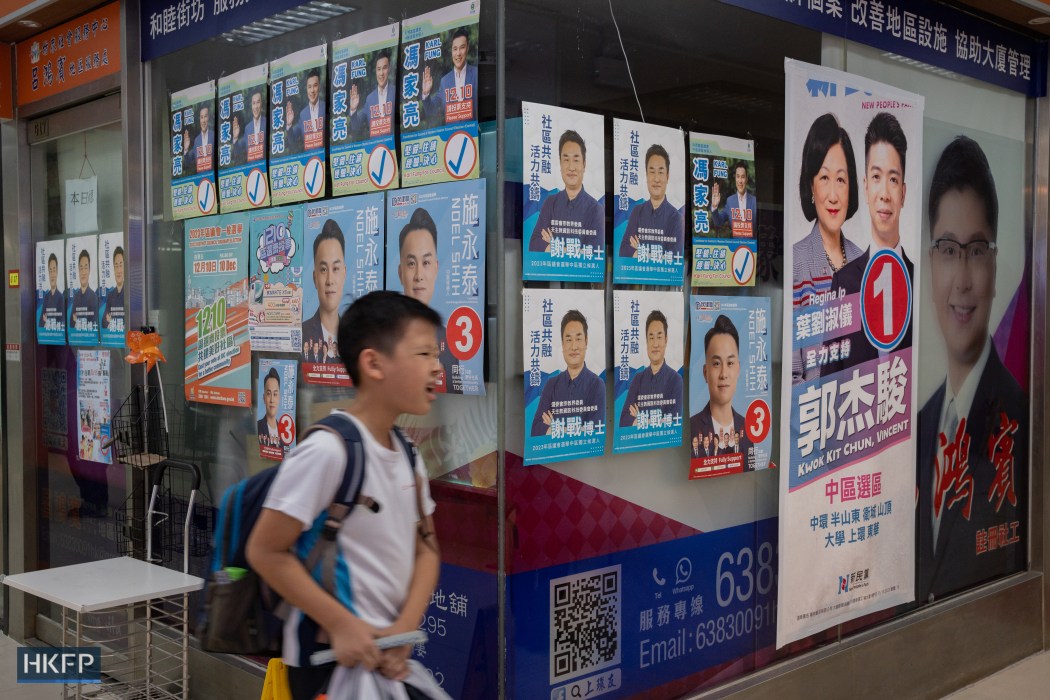
Published on Monday evening, the guidelines will come into effect on January 1 as over 470 district councillors take office following Hong Kong’s first “patriots-only” election to appoint 88 members of the local councils. The December race – which effectively shut out opposition candidates by mandating nominations from government-appointed committees – saw the lowest voter turnout in any of Hong Kong’s post-colonial elections.
The guidelines spell out specific expectations, requiring district councillors to set up an office within their first three months and ensuring they are open no less than 40 hours per week. At least four hours must fall on weekday evenings, weekends and public holidays.
Once a week, councillors must meet the public personally at their offices.
They must also attend at least 80 per cent of meetings held by the District Council and its committees per year. Members who do not attend any meetings in four consecutive months will be disqualified.
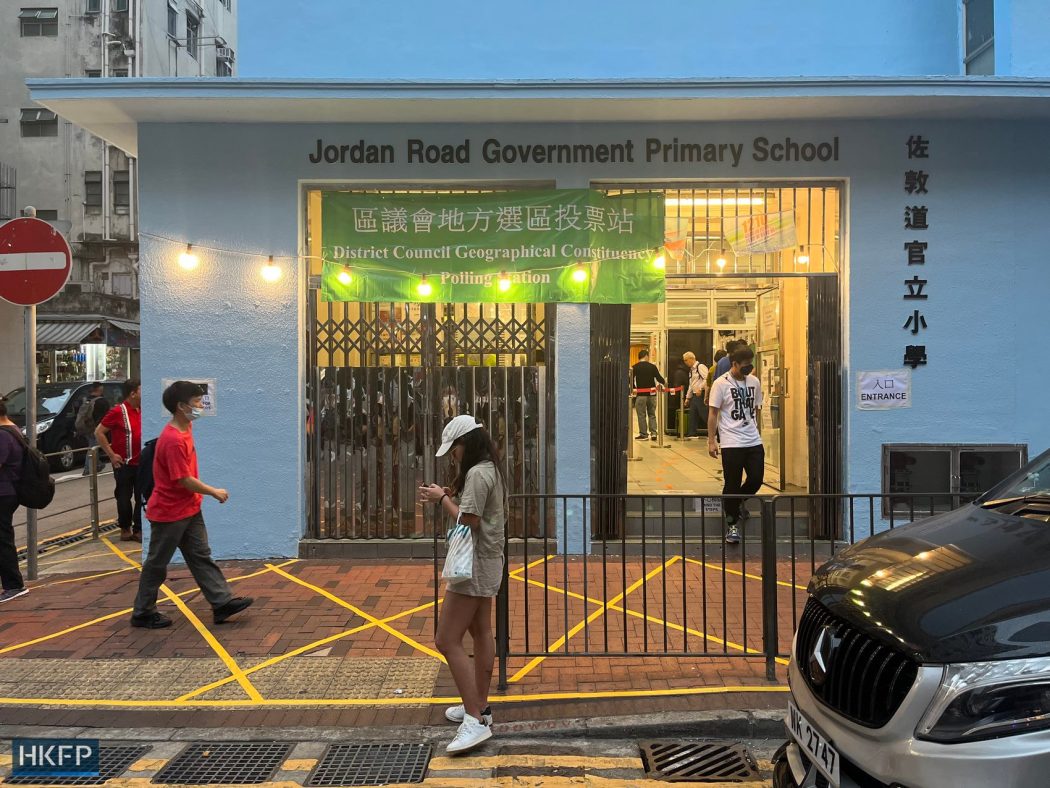
District councillors serve a four-year term. The role is not a full-time job, and it is common for District Council members to juggle other work commitments – including, in previous years, being a lawmaker.
Apart from work standards, the guidelines also stipulate examples of “misconduct,” including “stirring up social conflicts,” obstructing other District Council members or government officers from attending and leaving meetings, and disrupting meetings by throwing objects and “causing chaos.”
Those found to have engaged in misconduct could be investigated and face sanctions. They stand to see their duties suspended for at least two weeks, and will not receive any remuneration or allowances during that period.
Being convicted by a court and sentenced to imprisonment – including suspended sentences – are also considered misconduct even if they do not meet the criteria for disqualification from the District Council under the law. The guidelines gave the hypothetical example of a District Council member who is convicted of unlawful assembly and jailed for three months, stating that such a person could be investigated.
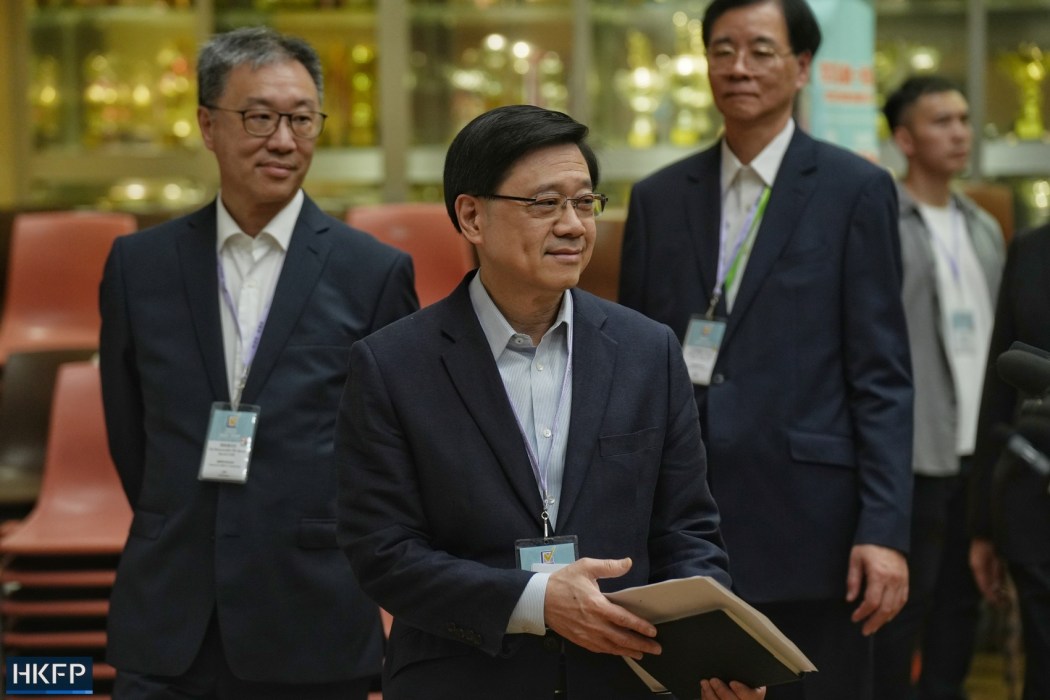
The government announced plans to overhaul the District Council elections in May 2023, introducing a mechanism for vetting candidates and slashing the number of publicly elected seats from 452 to 88. The rest of the seats were voted on by three government-appointed committees and chosen by the city’s leader.
Chief Executive John Lee has said that district councillors elected in 2019 disrupted meetings and “unscrupulously took actions that were not in line with the functions of DCs as district advisory organisations.” Pro-democracy candidates won a landslide victory during the elections that year, held amid protests and unrest triggered by a controversial amendment to the city’s extradition bill.
In an interview with Ming Pao in late November, Chief Secretary Eric Chan said the role of District Councils would be “consultative” and not “politicalised.” Chan said district councillors should assist the government in explaining policies to the public.
Earlier this month, Lee said the government would implement a monitoring system to evaluate the performance of District Council members. He added that members of the community were “very welcome to join in on the monitoring system.”
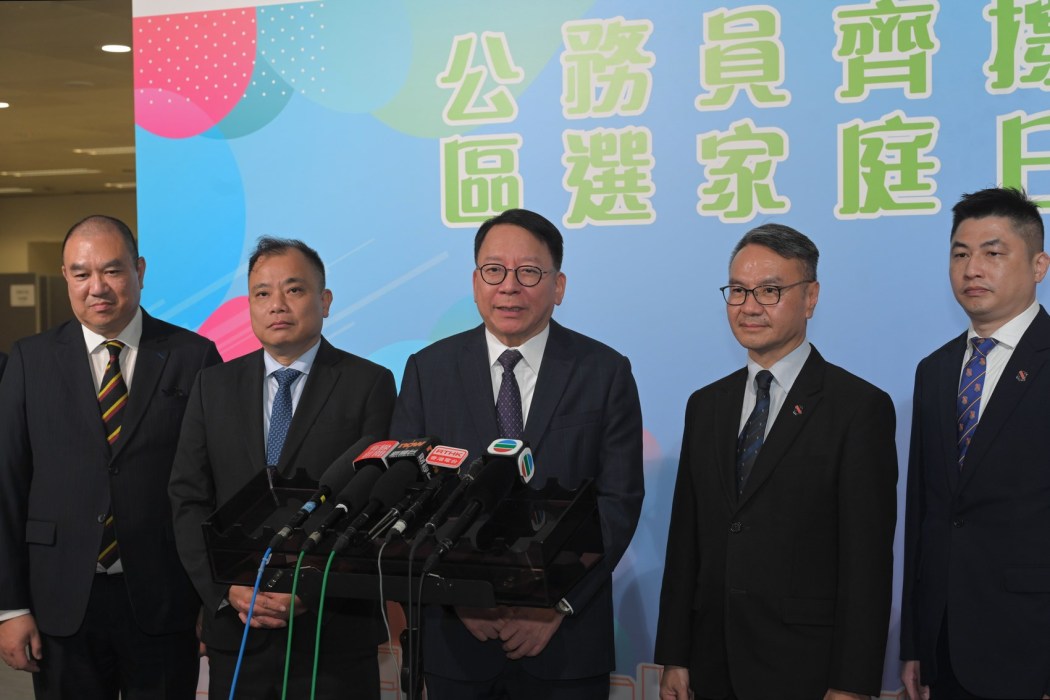
Announcing the guidelines on Monday, Secretary for Home and Youth Affairs Alice Mak said in an English statement: “[District Council] members must proactively fulfil their duties and responsibilities, and connect to and serve the people, reflect their opinions and support the Government’s implementation of policies and must not be lazy and sloppy in their work.”
Newly empowered district officers
According to the guidelines, failing to complete tasks set out by the District Council chairperson could also constitute misconduct.
As part of the overhaul, district officers – or civil servants who head the government’s district offices – will assume the chairperson positions in each of the 18 District Councils. In the past, the chairperson was elected by members of the District Council.
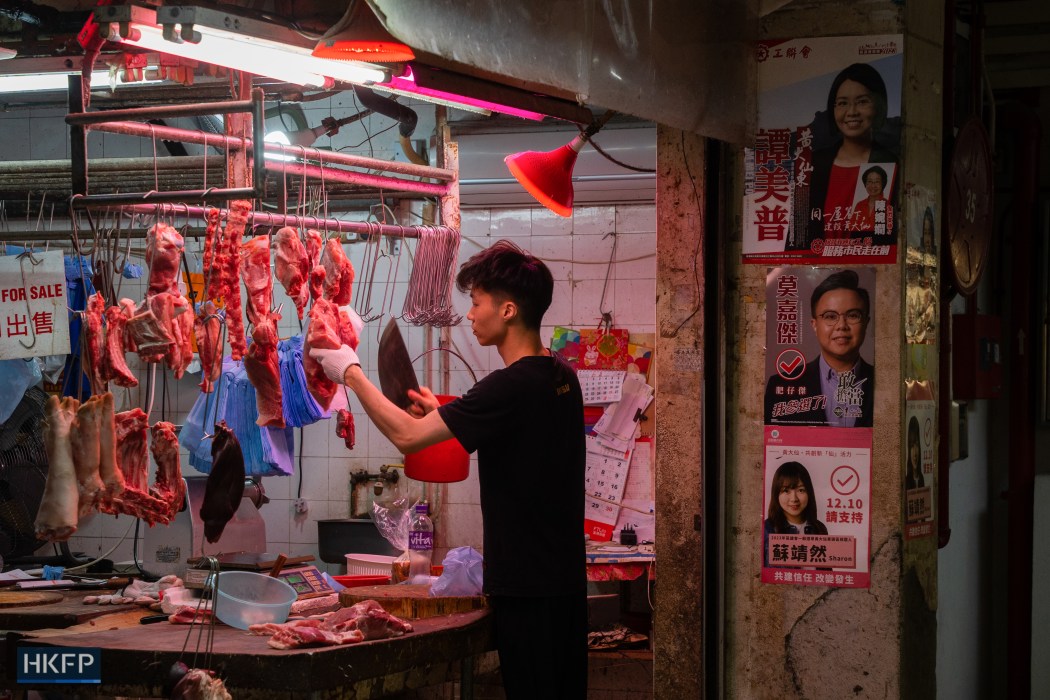
Now, the district officers will be in charge of setting up committees, assigning tasks to district councillors, and overseeing councillors’ annual work reports, according to a document published on Monday. They will also have the power to appoint members to District Council committees – including people who are not district councillors themselves – and select chairpersons to lead them.
On Monday, the Home and Youth Affairs Bureau, which oversees district officers, hosted a training course for the incoming district councillors. Chan attended the training, instructing them to prioritise national security and follow the principle of “patriots governing Hong Kong.”
Ming Pao reported that 19 incoming district councillors were absent from the training.
Support HKFP | Policies & Ethics | Error/typo? | Contact Us | Newsletter | Transparency & Annual Report | Apps
Help safeguard press freedom & keep HKFP free for all readers by supporting our team

LATEST FROM HKFP
HKFP has an impartial stance, transparent funding, and balanced coverage guided by an Ethics Code and Corrections Policy.
Support press freedom & help us surpass 1,000 monthly Patrons: 100% independent, governed by an ethics code & not-for-profit.










